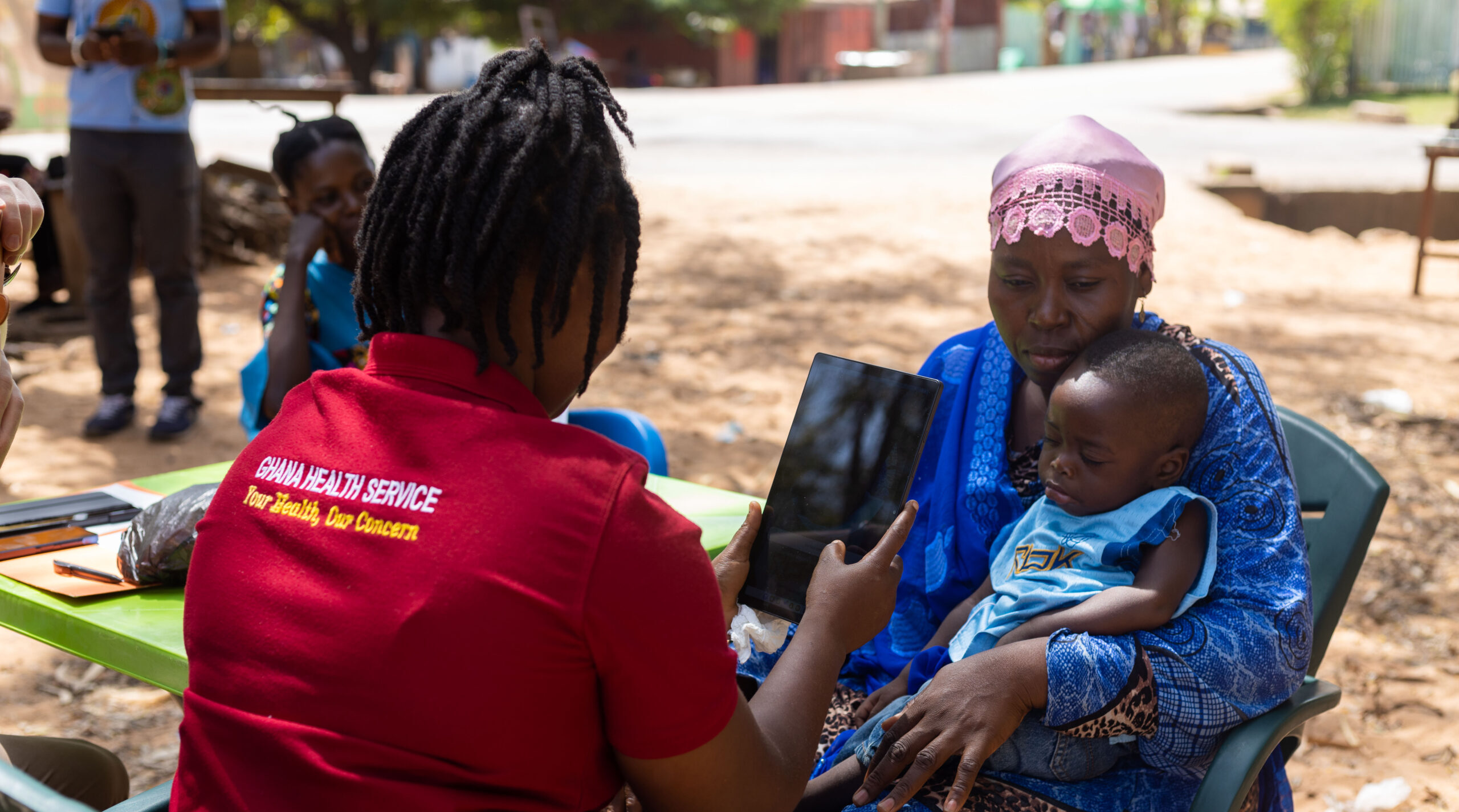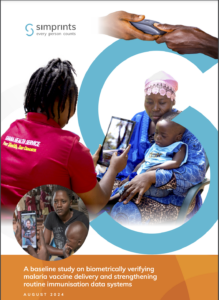New baseline study: Biometrically verifying malaria vaccine delivery in Ghana

Our latest study, finalised in August 2024, establishes a critical baseline for a project that aims to improve routine child immunisation rates in Ghana.
 The study, conducted by Simprints and the School of Public Health at the University of Ghana, covers Ghana’s Eastern and Oti regions. It marks an essential milestone in preparations to implement Simprints’ biometric technology solution, which aims to enhance child immunisation service delivery and improve health data systems.
The study, conducted by Simprints and the School of Public Health at the University of Ghana, covers Ghana’s Eastern and Oti regions. It marks an essential milestone in preparations to implement Simprints’ biometric technology solution, which aims to enhance child immunisation service delivery and improve health data systems.
Download the Biometrically verifying malaria vaccine delivery in Ghana report.
Study objectives
- Measure current child routine immunisation coverage in target regions.
- Understand perceptions, beliefs, and acceptance of biometric systems among community members and community health workers.
- Set a benchmark for assessing progress and evaluating impact at the end of the project.
- Assess the knowledge and attitudes of community health workers towards biometric technology.
- Evaluate data quality at health facilities as a benchmark for progress.
What data was collected?
The study team gathered both quantitative and qualitative data through household surveys, interviews and focus group discussions involving health workers, community members and local stakeholders. The study reached around 2,000 participants.
Key findings
- Only 18.7% of children received all required doses for all antigens.
- 78% of children received all vaccine doses within their first year of birth.
- An impressive 98% of health workers surveyed were familiar with biometrics.
- More than half, 58%, believed biometric devices have practical applications in healthcare.
- Community members reported prior experiences with biometric systems, recognising potential benefits such as, simplifying hospital visits, improving diagnostic accuracy, and efficiently managing health records in real-time.
How the results will guide our work
The study findings provide a valuable reference point for planning and implementing our upcoming project. Community concerns, perceptions and beliefs have been documented to guide project roll-out and ensure alignment with the community. The baseline results establish a valuable benchmark for child immunisation coverage and data quality, enabling progress tracking and impact evaluation when the project comes to an end.
Natia Ubilava, Simprints’ Senior Monitoring, Evaluation, & Learning Manager commented:
This baseline study highlights the opportunities for biometric technology to improve immunisation services and ensures we have robust evidence to measure our impact. It sets the stage for data-driven decision-making as we work together with our partners to strengthen healthcare delivery systems in Ghana.
We’re focused on establishing a strong foundation for evidence-based decision-making, ensuring that project design is informed by community insights and grounded in accurate data.
The data presented in this executive summary were collected during the project’s baseline phase in June 2024, and the full baseline report was finalised in August 2024. This summary, published in January 2025, reflects the context, conditions, and data available at the time of collection.


